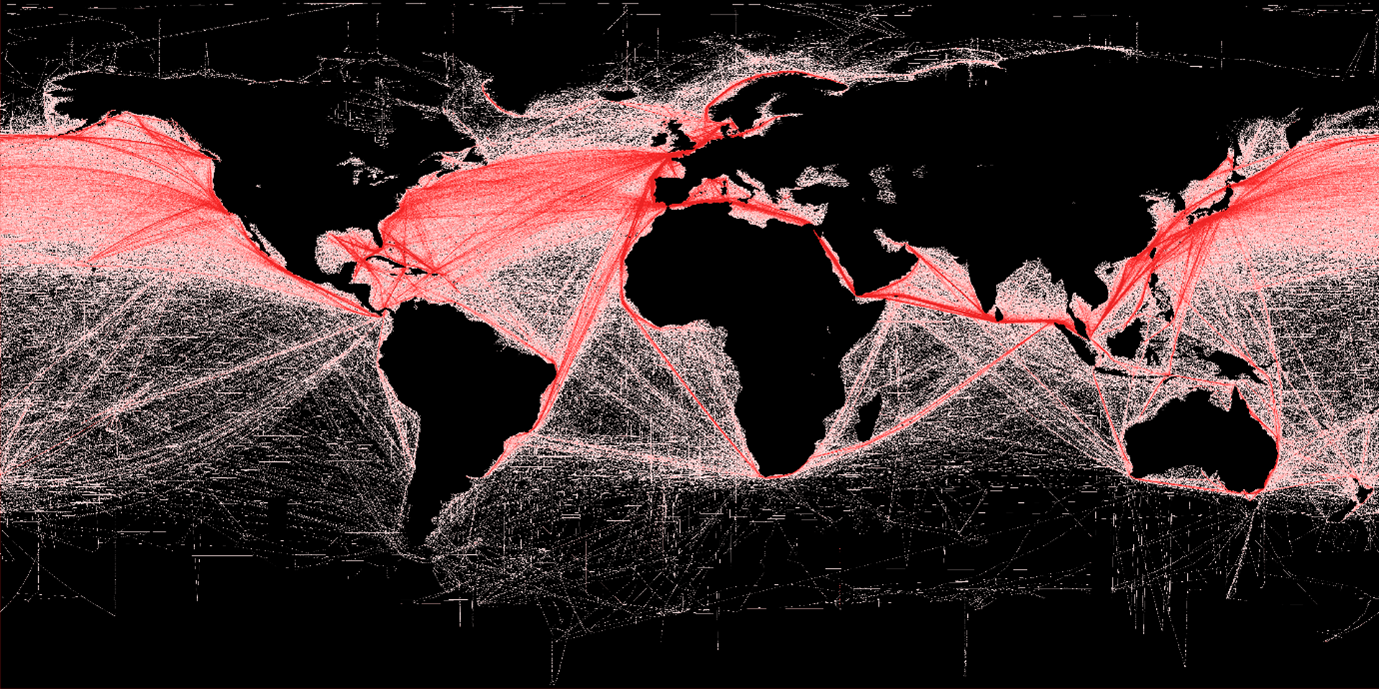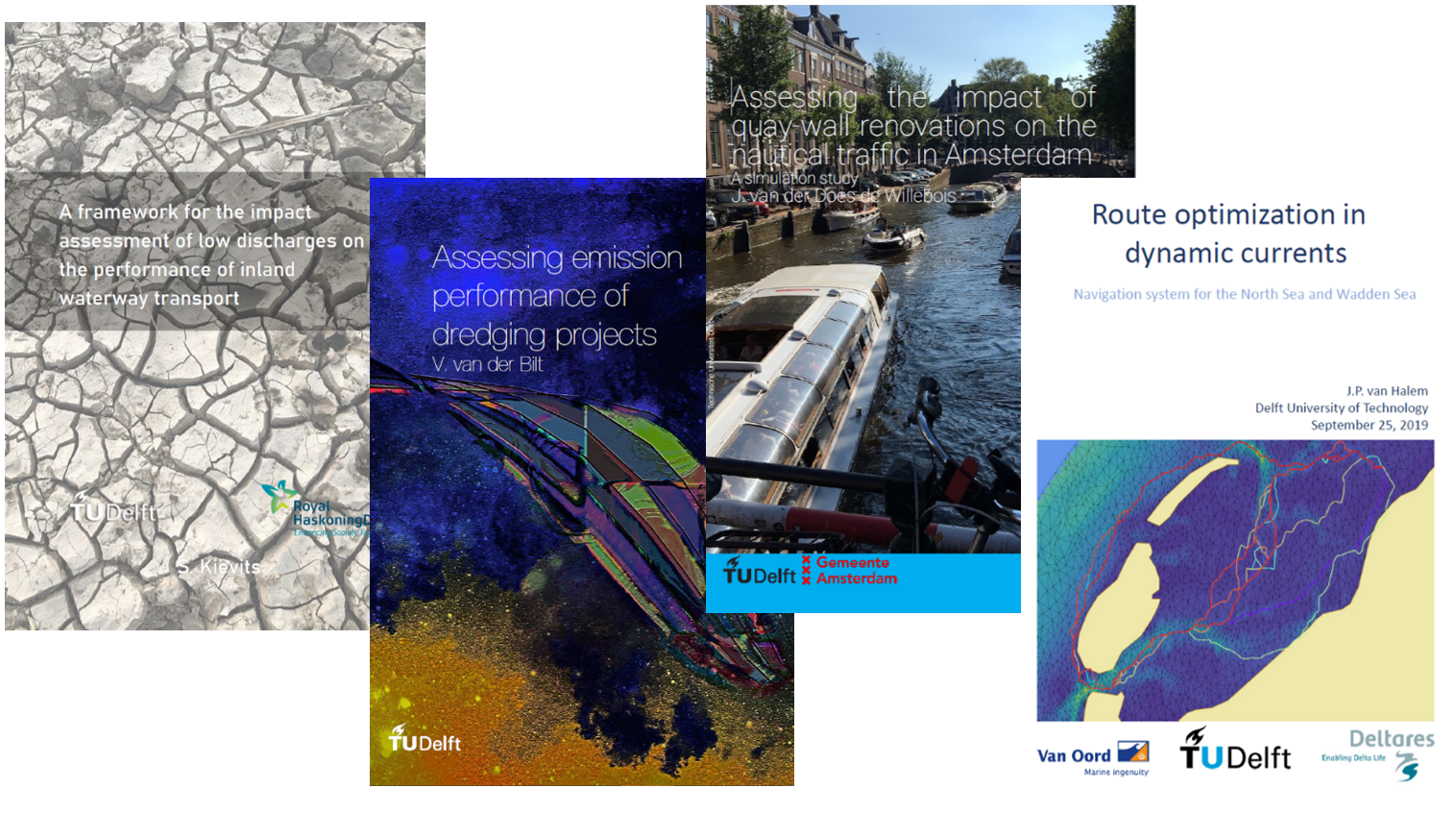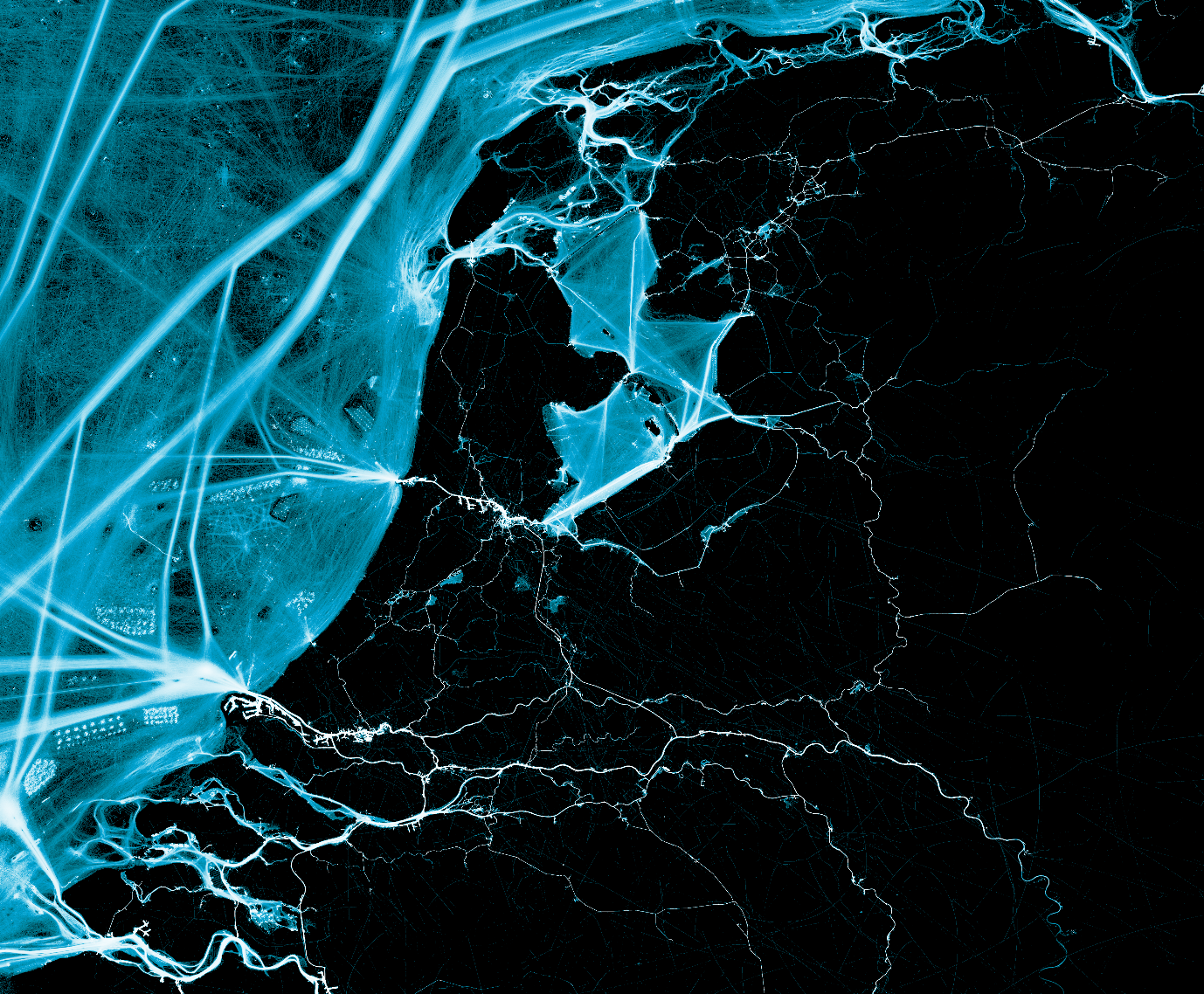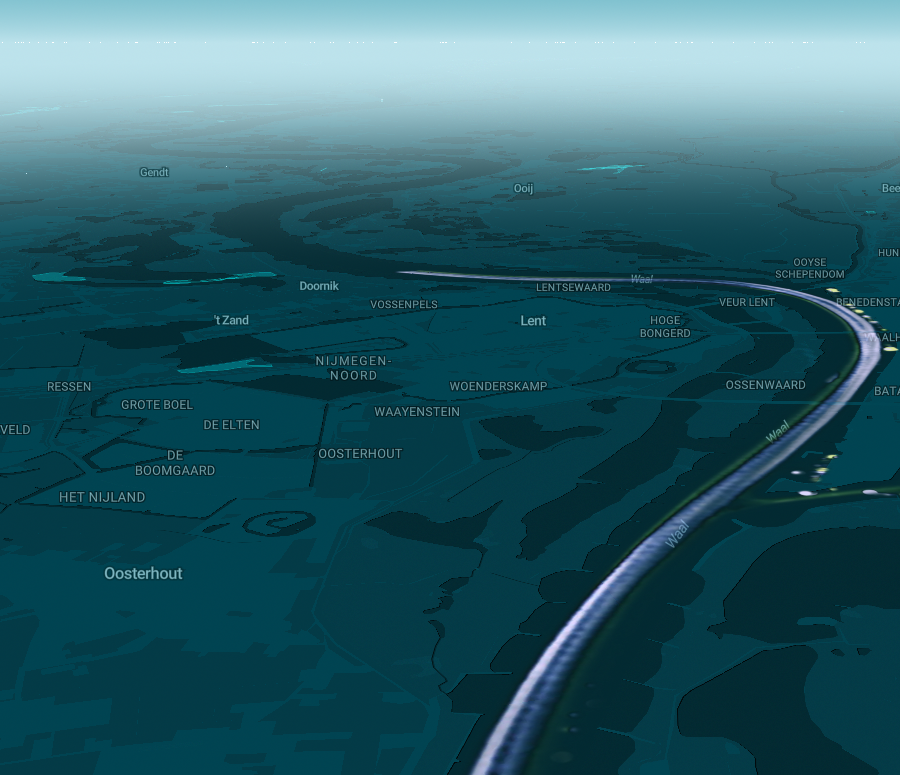Ports & Waterways Nautical Traffic Lab (PWNT Lab)
In the ever-changing world of waterborne transport, understanding and optimizing nautical traffic, capacity management, and safety are of great significance. Our "Nautical Traffic, Capacity, and Safety" Lab leads the way in research and innovation in this vital field. At the heart of our lab's mission lies the intricate interplay between the water transport system and the surrounding physical environment. We are dedicated to understanding the intricacies of waterborne supply chains, aiming to make them more efficient and safer.
Our team of researchers thoroughly studies every aspect of nautical traffic. By closely studying vessel interactions, traffic patterns, and navigational behavior, we gain valuable insights into the dynamics of maritime traffic. Armed with this knowledge, we aim to optimize routes, minimize congestion, and uphold the highest standards of safety.
One of our core areas of focus revolves around traffic management strategies. We recognize that the smooth flow of vessels is essential to prevent bottlenecks and ensure uninterrupted trade, even during peak periods. To this end, we develop and apply sophisticated models that simulate nautical traffic. These models serve as powerful tools to assess the impact of various design and operational changes on traffic flow. Through these simulations, we can fine-tune the operation of ports and waterways to accommodate the evolving needs of global trade while safeguarding efficiency.
In addition to managing traffic, we place an unwavering emphasis on safety. Maritime safety is not a mere buzzword for our lab; it's a core commitment. We work to devise cutting-edge technologies and protocols that elevate safety standards. Our risk assessment measures are designed to protect not only the vessels and cargo but also the environment that harbors them. Furthermore, our research endeavors extend to mitigating the impacts of climate change within port and waterway environments.
In the "Nautical Traffic, Capacity, and Safety" Lab, we do not merely observe the complexities of waterborne transport; we proactively engage with these challenges to shape the future of maritime logistics. Our research is not only a testament to our dedication but also an assurance that waterborne supply chains can become more efficient, safe, and resilient to the changing global economy.
Research Programs
Research conducted within the Ports & Waterways’ labs is dedicated to advancing innovation, with a focus on economically viable, socially responsible, and environmentally sustainable maritime design and operations, including its logistic chains. Our research is often carried out in close collaboration with other faculties TU Delft and organizations such as Port of Rotterdam, Rijkswaterstaat, Deltares, consulting firms, and contractors.
The Ports & Waterways Nautical Traffic Lab has been actively engaged in several research programs, contributing to the development and improvement of maritime operations:
• Port Research Centre Rotterdam (PRC) – Delft
• Rijkswaterstaat Inland Waterways
• Integral Planning of Delta (IPOD)
• Delft Infrastructures and Mobility Initiative (DIMI)
• SALTISolutions
Port Research Centre Rotterdam (PRC) – Delft
PRC Delft University of Technology carries out research on topics that are relevant to the Port of Rotterdam (PoR). During the past years, this generated very innovative concepts, such as the foldable container and the Floating Container Crane, which are presently being developed. However, the program also gives opportunities for MSc studies to be carried out at PoR.
Rijkswaterstaat Inland Waterways
Presently, inland water transport has to face changes due to the increasing transport of cargo over water, a shift to more container transport, and changes in ship dimensions. Moreover, international developments offer challenges to connect European regions. Therefore, Rijkswaterstaat and TU Delft started to develop ideas on how to maintain the functions and structure of the inland navigation system. The intention of the discussions is to realize a long-term cooperation that benefits inland navigation.
Integral Planning of Delta (IPOD)
Deltas are the areas where urbanization and economic development take place rapidly and on a massive scale. However, these areas are often vulnerable to flooding and urbanization increases the pressure on the natural habitats in these areas. There is a worldwide demand for a planning method that can contribute to a balanced development between safety, ecological value, economic growth, and quality of the living environment. IPOD was a research about the planning and design methods in the southwestern Dutch delta.
Delft Infrastructures and Mobility Initiative (DIMI)
DIMI is a research involving different faculties of the Delft University of Technology. It focuses on the research areas of water and transport-related infrastructure and mobility. Ports & Waterways Labs do research under the branch of Sustainable Mainports and Hubs. The research is about the Port of the Future. In the long-term plan of the Port of Rotterdam, the port wants to be the most sustainable port in the world. How can this be achieved and what can be expected of future economic developments?
SALTISolutions
The availability of freshwater is under pressure in deltas throughout the world. Salty seawater is penetrating further up the rivers due to human intervention, such as the deepening of waterways, as well as climate change. Within SALTISolutions, the researchers, together with the partners involved such as Rijkswaterstaat, water boards, port authorities, and dredging companies, are producing a virtual model (digital twin) of the Rhine-Meuse Delta. This model will integrate knowledge about processes on various spatial and time scales: from turbulent flows at the smallest scale level to the consequences of climate change in the long term. They will use this to predict how, where, when, and how long salt from seawater will penetrate, and how measures such as implementing nature-based solutions influence the freshwater supply.
Furthermore, there are various Ph.D. studies ongoing at the lab:
- Climate risks for inland shipping
- Deep learning to evaluate the competitive performance of ports & waterways network configurations
- Implications of nature-based SALTIsolutions for port logistics
- RWS, investigating the impact of container transport on IWT
Every year, our research labs host several intriguing Master's projects. Here, you can see a few selected ones:
Interactive North Sea map
Plans to build in the North Sea have been proliferating, from another airport to homes on floating islands. It is, of course, key in providing the locations for wind farms, solar power generation and CO2 storage necessary for the energy transition process. But is there room for all these schemes? And will they clash with the activities already taking place on the North Sea? PhD candidate Solange van der Werff and her TU Delft colleagues developed an exceptionally detailed chart providing a comprehensive picture of how busy the North Sea actually is.
Interactive map North Sea
Scroll through the chart and discover for yourself the designated wind farm locations, the main shipping routes, activity around ports and sluices; dredging work locations and ships’ CO2 emission levels.
Drought on the North Sea
The summer of 2022 was dry and hot in Europe. Shipping was affected by the very low discharge. Was this foreseeable? Where was shipping most affected by the low discharge? Locks were closed to keep salt out, did that work?
Drought on the North Sea
In the scroll map Drought on the river, a number of 'stories' illustrate what the situation was like for shipping in the summer of 2022. All stories are based on measured open data. Scroll through the map and discover it for yourself.
Key Publications
Key Publications | ||
|---|---|---|
Van Dorsser, C., Hekkenberg, R., Vinke, F., and van Koningsveld, M. (2019). Effect of low water on loading capacity of inland ships. European Journal of Transport and Infrastructure Research 20(3), 47-70 | ||
Van Koningsveld, M., Verheij, H.J., Taneja, P. and De Vriend, H.J. (2021). Ports and Waterways - Navigating the changing world. Delft University of Technology, Hydraulic engineering, Ports and Waterways, Delft, The Netherlands. ISBN: 978-94-6366-444-8. | ||
Vinke, F., Van Koningsveld, M., Van Dorsser, C., Baart. F., Van Gelder, P. and Vellinga, T. (2022). Cascading effects of sustained low water on inland shipping. Climate Risk Management, 35, 100400 | ||
Team



















